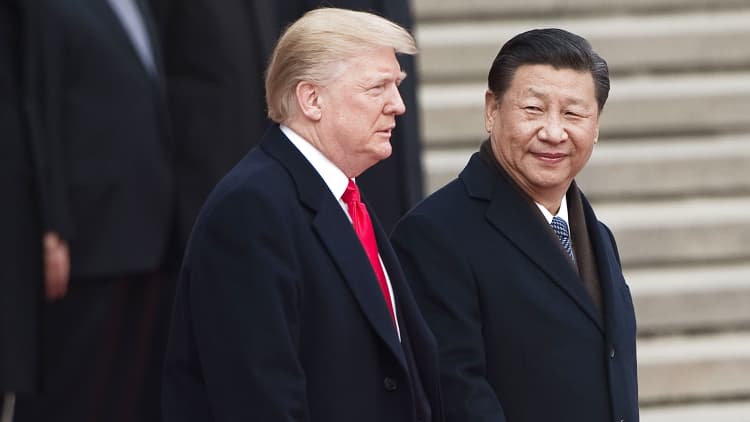
Cutting off the money flow between the U.S. and China as a lever in the trade war is worth considering, a former high-ranking White House trade official told CNBC on Tuesday.
However, Clete Willems, who had served as deputy director of the National Economic Council, said that delisting Chinese stocks on U.S. exchanges could backfire if not done properly.
"If the U.S. goes down that path and goes it alone and doesn't work with other countries, these same companies can just get listed in London or Tokyo or Hong Kong," he said on "Squawk Box."
"They'll still be able to raise capital without having to address the underlying problem," said Willems, who left his Trump administration post in April. He was NEC Director Larry Kudlow's right-hand man on trade with China. He's currently a partner in the Akin Gump law firm in Washington, D.C.
The underlying problem, according to Willems as well as a bipartisan group of senators, is a regulation blindspot that could hurt U.S. investors.
"The question of whether or not China can block our regulators from accessing the financial audits of their companies is a legitimate issue," said Willems, who participated in trade negotiations in Washington and Beijing.
Republican Sen. Marco Rubio, who ran for president in 2016, and Democratic Sen. Kirsten Gillibrand, who dropped out of the 2020 presidential race last month, are co-sponsors of a bill to increase oversight of Chinese and other foreign companies listed on American stock exchanges. The legislation calls for delisting firms that are out of compliance with U.S. regulators for a period of three years.
However, Senate Majority Leader Mitch McConnell told CNBC on Monday that restricting Chinese investment in the U.S. may not be the best playbook for dealing with Beijing.
The Kentucky Republican on "Squawk Alley" played down any benefits of preventing Chinese companies from tapping into U.S. stock markets, saying such a move would not be in the best interest of the U.S economy. "That could end up hurting us — whatever tactics we use with regard to China need to not be ones that punish us."
Several news outlets, including CNBC, reported Friday that the White House was thinking about ways to cut off the flow of American dollars to China and Chinese companies.
On Monday, White House trade advisor Peter Navarro said on CNBC that those recent reports were grossly inaccurate, calling them "fake news." Over the weekend, a Treasury official said that "the administration is not contemplating" such a move at "this time."
In Monday's interview on "Squawk Box," Navarro was also asked what he expects when high-level talks in Washington aimed at ending the more than yearlong trade war between the U.S. and China, resume Oct. 10. "We'll see what happens," said the Trump official, refusing to provide more details. He said, "You can't negotiate in public."


